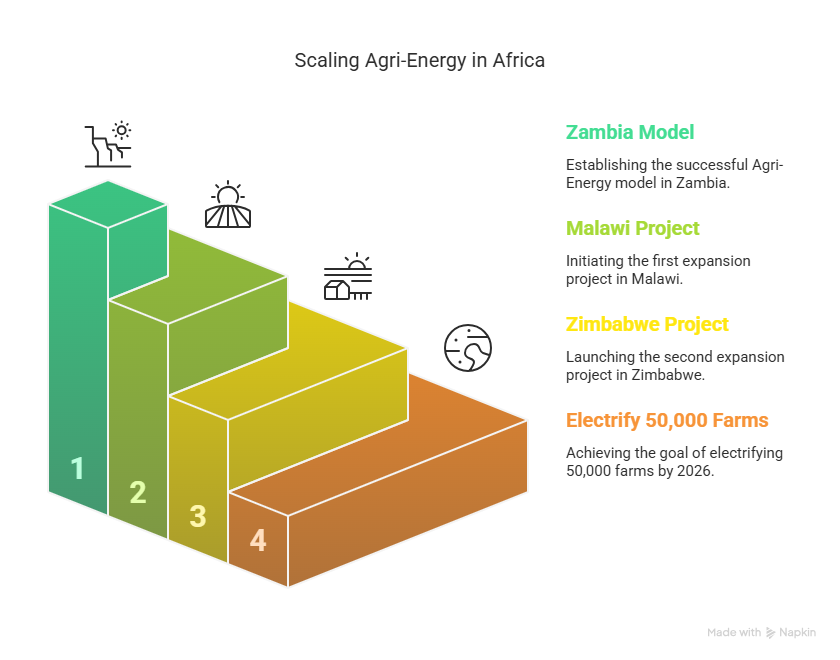
Revolutionizing Rural Sustainability with Linkbridge Financing.
This Case Study explores the transformative impact of Agri-Energy Cooperatives in Zambia, highlighting how Linkbridge financing is empowering farmers to overcome energy poverty, enhance productivity, and foster sustainable rural development. By examining the challenges faced by rural farmers and showcasing successful case studies, we illustrate the potential for scalable solutions that can be replicated across Africa.
The Challenge: Energy Poverty in Rural Zambia
Zambia’s rural farmers face crippling energy costs, with 60% relying on costly diesel pumps and experiencing erratic grid access. This situation stalls productivity and traps communities in a cycle of poverty, making it difficult for farmers to thrive and invest in their futures.
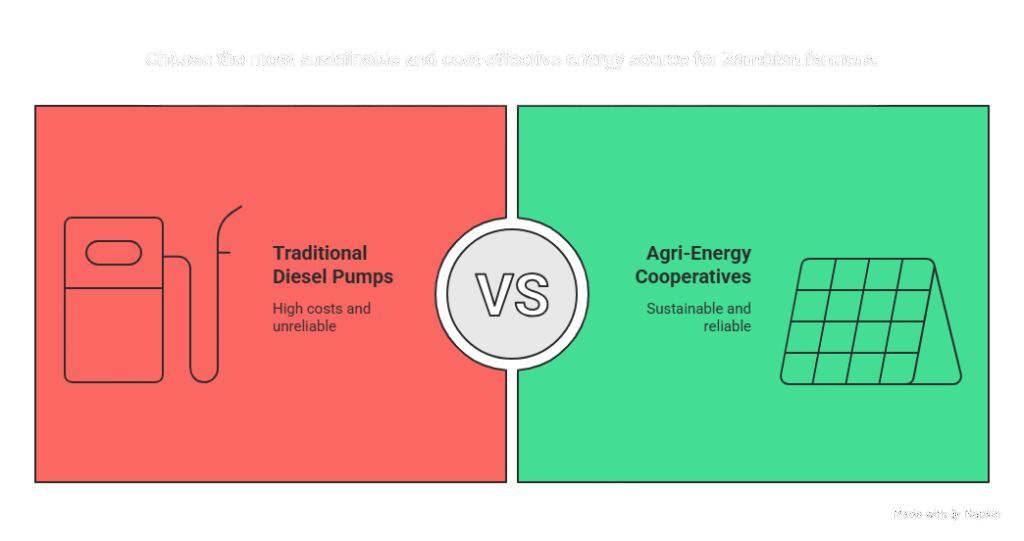
The Solution: Agri-Energy Cooperatives Powered by Linkbridge
Linkbridge partners with Zambian farmers to launch solar and biogas cooperatives, offering:
- ✅ Low-Interest Loans: For shared solar grids, biogas digesters, and irrigation technology.
- ✅ Technical Training: Local experts guide installation, maintenance, and energy sales.
- ✅ Community Partnerships: Linkbridge connects cooperatives with NGOs and Zambia’s Renewable Energy Agencies.
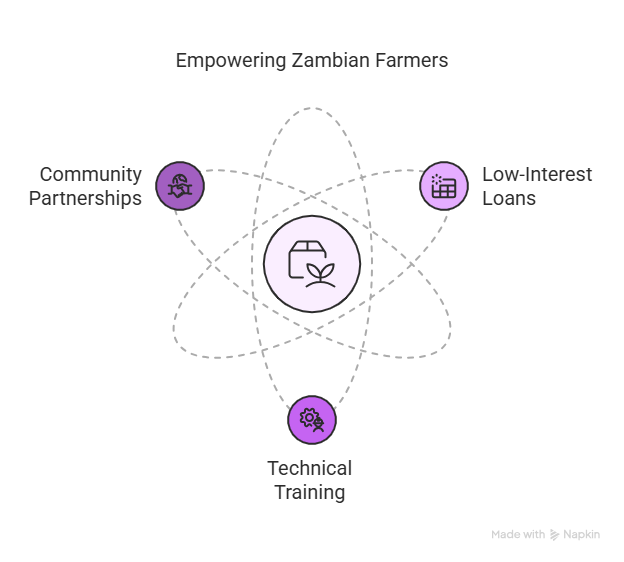
Case Study: The Chikanta Solar Cooperative
Location: Southern Zambia
Members: 32 smallholder farmers
Linkbridge Support: $120,000 loan + technical advisory
Before:
- Diesel pumps consumed 40% of profits.
- No electricity for processing/storage; post-harvest losses hit 30%.
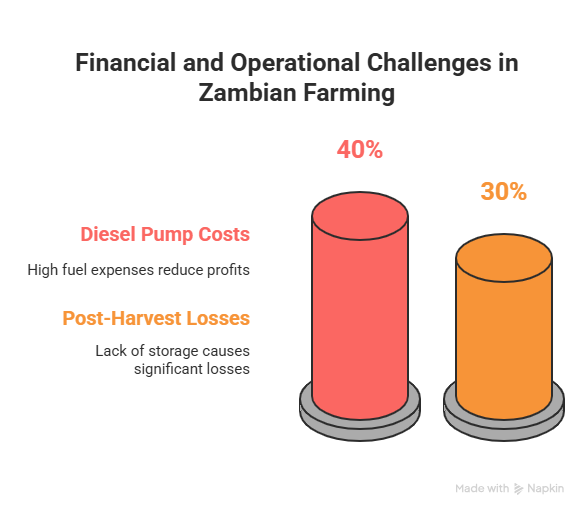
After:
- Solar-Powered Irrigation: Cut energy costs by 70%, freeing funds for seeds and equipment.
- Excess Energy Sales: Cooperative sells surplus solar power to 200 nearby households, earning $1,200/month.
- Biogas Add-Ons: Livestock waste converted to clean fuel, replacing firewood.
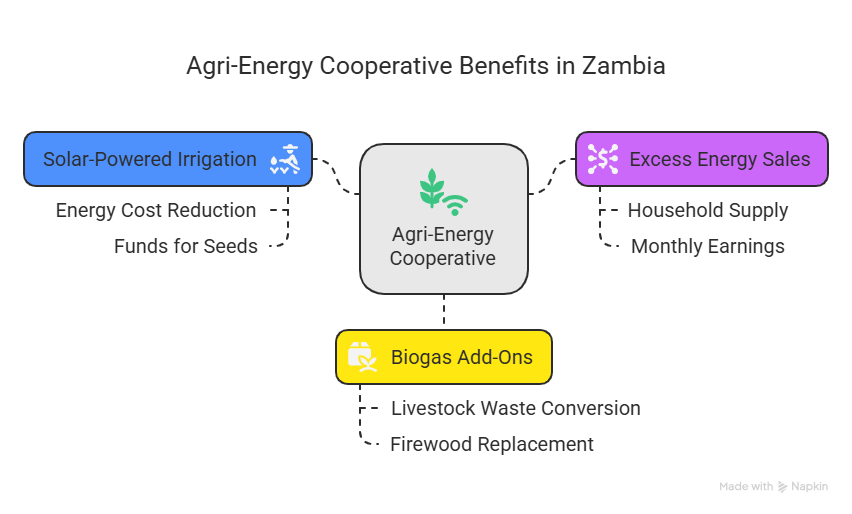
Impact in 18 Months:
- Income Increase: 55% average rise in member earnings.
- CO2 Reduction: 180 tons saved annually.
- Jobs Created: 15 new roles in maintenance and energy distribution.
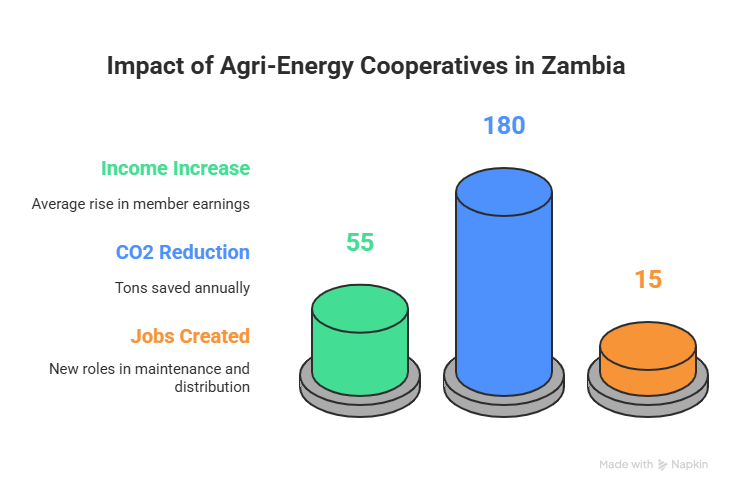
Why Agri-Energy Cooperatives Work in Zambia
- Scale Economies: Shared systems cut per-farmer costs by 60% compared to solo setups.
- Resilience: Decentralized energy buffers against droughts and grid failures.
- Inclusivity: Women-led cooperatives (like Chikanta’s) drive 80% of local energy decisions.
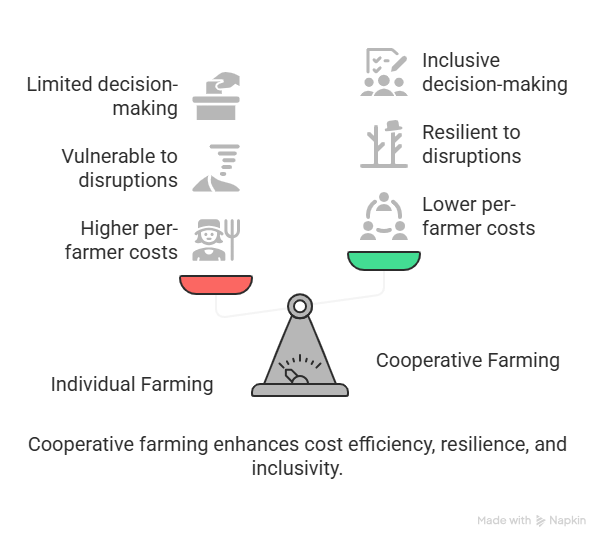
Linkbridge’s Role in Scaling Rural Sustainability
- Tailored Financing: Loans structured around harvest cycles (12–24-month repayments).
- Tech Partnerships: Subsidized access to high-efficiency solar pumps and AI-driven energy management tools.
- Policy Advocacy: Collaborating with Zambia’s government to streamline permits for farmer-led energy projects.
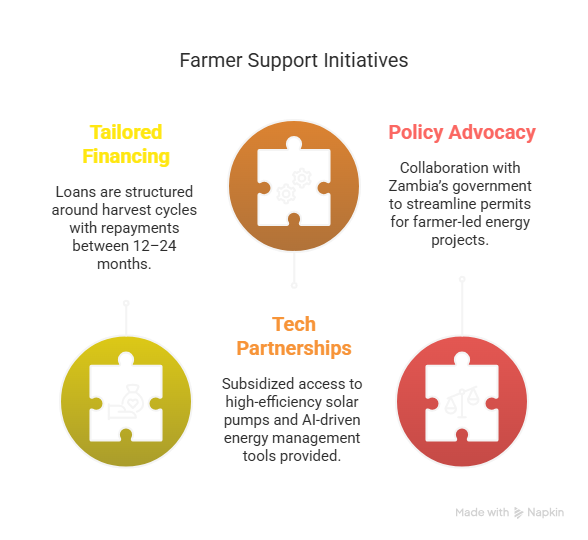
The Future: A Blueprint for Africa
Zambia’s Agri-Energy model, backed by Linkbridge, is replicable across Africa, where 600 million lack electricity. Upcoming projects in Malawi and Zimbabwe aim to electrify 50,000 farms by 2028, showcasing the potential for widespread rural empowerment and sustainability.
